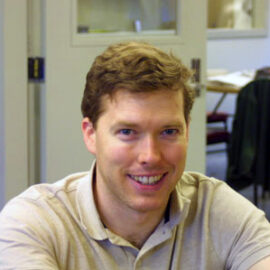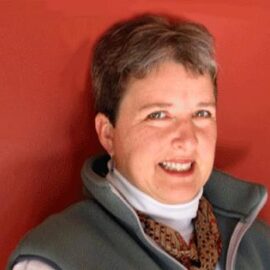Piano Technology
Our comprehensive Piano Technology programs give you the skills you need to start a successful business and pursue a deeply satisfying career. We offer two nine-month courses—Basic Piano Technology (PT) and Advanced Piano Technology (PA)—both of which provide intensive training with master faculty in a stimulating environment.
Both programs attract students who share a passion for music, problem solving, complex mechanisms, and the hand and machine skills used to restore and care for beautiful musical instruments. Combined with business instruction, you’ll have the opportunity to develop the skills and knowledge to become a successful technician.
Basic Piano Technology (PT)
The PT program covers the most common aspects of in-home piano service, with aural tuning at the core of the curriculum. You’ll also learn to regulate and repair the actions of both upright and grand pianos. Classes include hands-on work, lectures, and field trips to such venues as the Museum of Fine Arts in Boston, Mason & Hamlin Factory in Haverhill, the Steinway factory in Long Island City, as well as various workshops and collections throughout New England.
Advanced Piano Technology (PA)
The PA program focuses on the entire piano and comprehensive piano service. Each year, PA students work in teams of two or three to dismantle, rebuild, and repair grand pianos with faculty guidance. Through that process, you’ll gain an in-depth understanding of piano construction that will serve you well whether you pursue a career in on-site service or a career in rebuilding. Students will learn how to approach piano service calls with a well-rounded, whole-piano mindset as opposed to a tuning-only mindset.
Schedule & Curriculum
- Students are admitted in September.
- The maximum enrollment is 16 students.
- Classes meet 8:00 am – 3:30 pm, Monday – Friday, September through May.
- The program length is one, nine-month academic year (36 weeks or 1260 class hours*).
- Students who complete the program receive a Certificate of Basic Piano Technology.
* Class hours equals clock hours.
- Students are admitted in September.
- The maximum enrollment is 9 students.
- Classes meet 8:00 am – 3:30 pm, Monday – Friday, September through May.
- The program length is one, nine-month academic year (36 weeks or 1260 class hours*).
- The successful completion of the NBSS Basic Piano Technology course, Registered Piano Technician (RPT) certification or equivalent experience is a prerequisite for this course.
- Students who complete the program receive a Diploma of Advanced Piano Technology.
* Class hours equals clock hours.
Careers
Graduates of our Piano Technology Program have a variety of successful career choices. In addition to being independent entrepreneurs, our graduates hold positions at piano companies, colleges and universities, concert halls, recording studios, and music festivals.
Our graduates have held jobs like:
- Registered Piano Technician (RPT)
- Piano technician and manager in the piano technical services departments of colleges and universities
- Piano tuner for recording studios
- Owner, piano tuning and repair business
- Owner, instrument rental business
- Piano technician at various Steinway Piano Galleries
- Piano technician for Tanglewood and Sundance summer music festivals
- Piano rebuilder
- Piano repairman/restorer
- Consultant for a piano company
- Piano tuner for cruise ship company
Educating Basic and Advanced Piano Technology students for employment may begin in our practice rooms and program spaces, but the work doesn’t end there. Newly learned skills are tested in the real world, via a wide variety of internship opportunities, from tuning grand pianos at summer music festivals to servicing upright models in the Boston Public Schools.
The closest job classification the U.S. Department of Labor (DOL) uses is “Musical Instrument Repairers and Tuners.” This classification includes repair of percussion, stringed, reed, and wind instruments. May specialize in one area, such as piano tuning. The classification does not include repair and tuning of electronic instruments.
Musical Instrument Repairers and Tuners held about 6,200 jobs in 2025. The Occupational Information Network (O*NET) predicts there will be about a 1% growth in jobs from 2025-35, with roughly 600 job openings within that decade.
According to O*NET, the average annual salary for musical instrument repairers was $46,250 as of 2025, with an average hourly rate of $22.24. Additionally, income for this occupation varies widely based on industry and location. The U.S. DOL reports the following:
Industries with the highest levels of employment for musical instrument repairers:
- Sporting Goods, Hobby, and Musical Instrument Stores – Average annual salary: $45,030 | Average hourly wage: $21.65
- Personal and Household Goods Repair and Maintenance – Average annual salary: $43,420 | Average hourly wage: $20.88
- Other Miscellaneous Manufacturing – Average annual salary: $45,000 | Average hourly wage: $21.63
- Colleges, Universities, and Professional Schools – Average annual salary: $63,490 | Average hourly wage: $30.53
Top paying industries for musical instrument repairers:
- Performing Arts Companies – Average annual salary: $83,010 | Average hourly wage: $39.91
- Colleges, Universities, and Professional Schools – Average annual salary: $63,490 | Average hourly wage: $30.53
- Sporting Goods, Hobby, and Musical Instrument Stores – Average annual salary: $45,030 | Average hourly wage: $21.65
- Other Miscellaneous Manufacturing – Average annual salary: $45,000 | Average hourly wage: $21.63
- Personal and Household Goods Repair and Maintenance – Average annual salary: $43,420 | Average hourly wage: $20.88
Top paying states for musical instrument repairers:
- Texas – Average annual salary: $52,190 | Average hourly wage: $25.09
- Maryland – Average annual salary: $54,130 | Average hourly wage: $26.02
- California – Average annual salary: $46,940 | Average hourly wage: $22.57
- Tennessee – Average annual salary: $46,780 | Average hourly wage: $22.49
- Illinois – Average annual salary: $44,740 | Average hourly wage: $21.51
For more information on career outlook and additional resources, visit The Piano Technicians Guild.
People
Faculty




Meet Our Alumni

Brian Turano PT ’13, PA ’14“It is impossible to overemphasize the respect this school has in the piano technology industry. When [employers] see NBSS on your resume, they will take a serious look at you.”

Ruth Van Dine PT ’99, PA ’00“Someone told me the education from NBSS would make me a professional and they were right. Being able to understand everything I needed in order to do top-notch work… gave me confidence to keep going.”
Guest Lecturers & Instructors
Our Piano Technology instructors are nationally recognized and respected trade practitioners with nearly 70 years of combined experience. Each offers a unique perspective on the approach and execution of work, which gives students a more comprehensive view of the field.
We supplement instruction from our master faculty with visits from industry experts who provide hands-on lectures. Past speakers and field trips have included:
- Allan Winkler, Harpsichord maker
- Matthew Onigman PT ‘06, PA ’07, Sing For Hope
- Mario Igrec, The Juilliard School
- John Cavanaugh PT ’86, PA ’87, Oberlin College piano technology program
- Don Mannino, Kawai America
- Larry Fine PT ‘76, pianobuyer.com
- Michael Collins PA ’94, Mason & Hamlin
- Greg Cheng, electronic player systems and case finish repairs
- Dan Levitan PT ’75
- Chris Storch PT ’08, PA ’09, professional acoustician
- Barbara Renner PT ’78
Facilities
The Basic Piano Technology facilities include a bench room, lecture room, and sixteen individual practice rooms, outfitted with a variety of pianos. The Advanced Piano Technology facilities include a bench room, machine room, and spray booth.
Basic Spaces
Advanced Spaces
More Information
- Piano Technology program brochure: Download at-a-glance details.
- Admissions Info: How to get your application started and what you need to apply.
- Financial Aid: We’re dedicated to helping you afford the cost of your education. Learn about our financial aid options.
2023 Piano Technology Graduate & Employment Report
Basic Piano Technology
- 17 Basic Piano Technology students started the program in September 2021 and had a graduation date of June 2022.
- 94% of this student cohort graduated in 2022.
- 94% of these graduates are employed in the field.
- This data was officially reported to ACCSC in October 2023.
Advanced Piano Technology
- 7 Advanced Piano Technology students started the program in September 2021 and had a graduation date of June 2022.
- 100% of this student cohort graduated in 2022.
- 100% of these graduates are employed in the field.
- This data was officially reported to ACCSC in October 2023.
2024 Piano Technology Graduate & Employment Report
Basic Piano Technology
- 16 Basic Piano Technology students started the program in September 2022 and had a graduation date of June 2023.
- 94% of this student cohort graduated in 2023.
- 100% of these graduates are employed in the field.
- This data was officially reported to ACCSC in October 2024.
Advanced Piano Technology
- 6 Advanced Piano Technology students started the program in September 2022 and had a graduation date of June 2023.
- 83% of this student cohort graduated in 2023.
- 80% of these graduates are employed in the field.
- This data was officially reported to ACCSC in October 2024.
2025 Piano Technology Graduate & Employment Report
Basic Piano Technology
- 16 Basic Piano Technology students started the program in September 2023 and had a graduation date of June 2024.
- 94% of this student cohort graduated in 2024.
- 80% of these graduates are employed in the field.
- This data was officially reported to ACCSC in October 2025.
Advanced Piano Technology
- 7 Advanced Piano Technology students started the program in September 2023 and had a graduation date of June 2024.
- 100% of this student cohort graduated in 2024.
- 100% of these graduates are employed in the field.
- This data was officially reported to ACCSC in October 2025.
This disclosure is required by our accreditors, the Accrediting Commission of Career Schools & Colleges (ACCSC).
For each of our career training programs, we consult with a group of top professionals in the field to ensure our curriculum continues to meet industry needs and trends.
The Piano Technology Program Advisors are:
- George Crawford
- Lawrence Fine PT ’76
- Ann Garee
- Michael Jurewicz
- Xiaodan Liu PT ’07, PA ’08
- Jude Reveley
- Lewis J. Surdam PT ’79, PA ’80